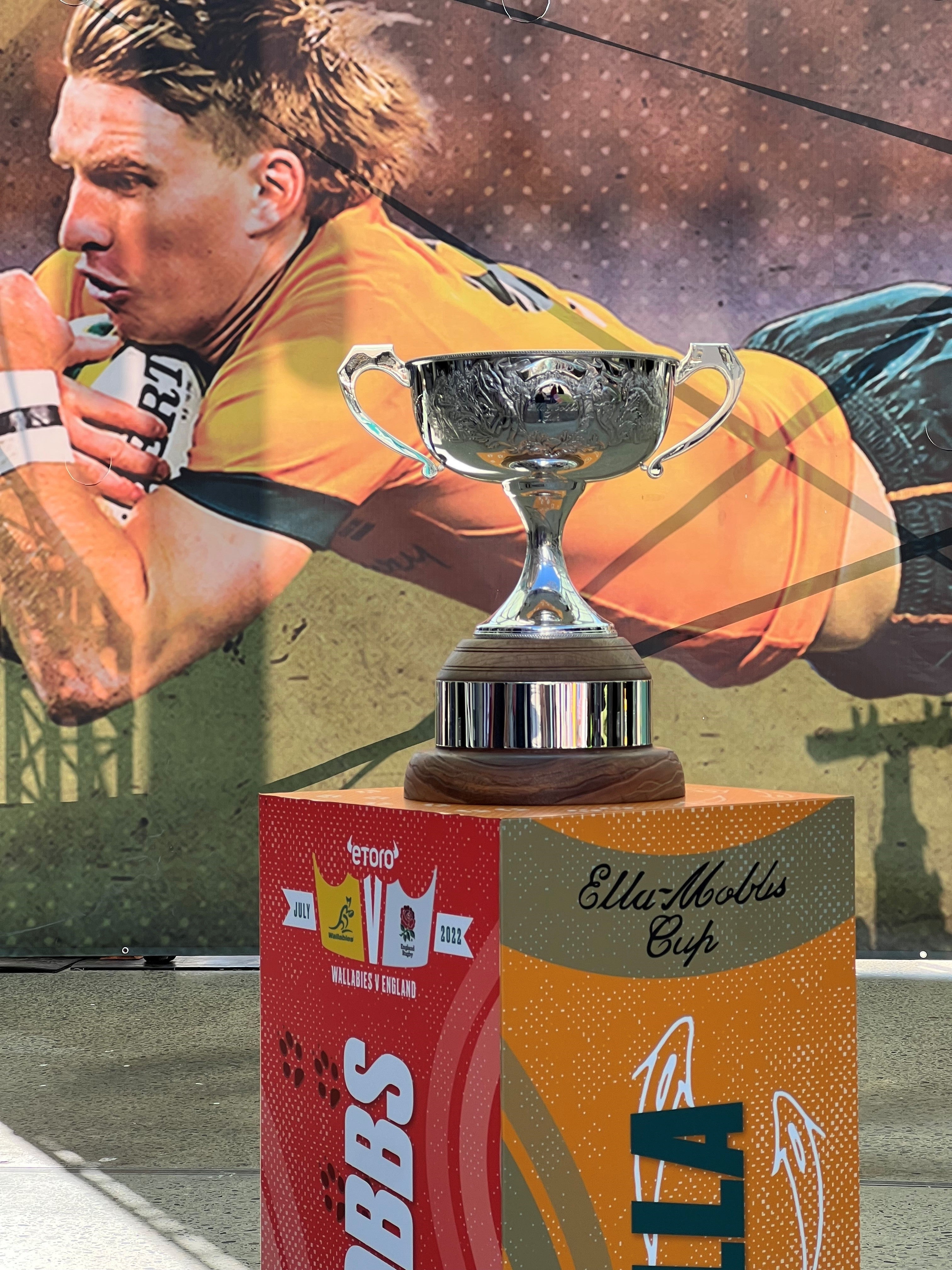Mark Ella welcomes recognition of Aboriginal people’s contribution to rugby
Australia and England clash over three Tests starting in Perth on Saturday and for the first time the Ella-Mobbs Cup will be at stake.

Your support helps us to tell the story
From reproductive rights to climate change to Big Tech, The Independent is on the ground when the story is developing. Whether it's investigating the financials of Elon Musk's pro-Trump PAC or producing our latest documentary, 'The A Word', which shines a light on the American women fighting for reproductive rights, we know how important it is to parse out the facts from the messaging.
At such a critical moment in US history, we need reporters on the ground. Your donation allows us to keep sending journalists to speak to both sides of the story.
The Independent is trusted by Americans across the entire political spectrum. And unlike many other quality news outlets, we choose not to lock Americans out of our reporting and analysis with paywalls. We believe quality journalism should be available to everyone, paid for by those who can afford it.
Your support makes all the difference.As a club player in Australia Mark Ella was subjected to racist abuse, so the Wallaby great welcomes the growing recognition of the contribution made to rugby by Aboriginal people.
Australia and England clash over three Tests starting in Perth on Saturday and for the first time the Ella-Mobbs Cup will be at stake in place of the Cook Cup, which was inspired by British explorer Captain James Cook.
The two unions have chosen a new direction by uniting the stories of Ella and English war hero and international wing Edgar Mobbs to create a piece of silverware that better represents both nations.
Combined with the Wallabies’ Indigenous jersey, it is part of a drive to increase awareness of the country’s First Nations heritage.
Ella was a fly-half outlier who captained Australia 10 times, yet along with his brothers Glen and Gary he was targeted with racist abuse when playing for Randwick during the 1970s and 80s.
“When we started out we used to get the crowds because people would come out of curiosity to see these Aboriginals play, thinking ‘can they play rugby?’” Ella said.
“In the early days there was a bit of a novelty. We’d play and be called ‘black this, black that’ from all of our opposition.
“After three or four months we realised that instead of belting them, literally, and trying to fight them because of what they were calling us, we’d actually beat them on the scoreboard. That meant a lot more to us because we were actually winning.
“There are not a lot of Aboriginals to have played for Australia, but hopefully this trophy will be the start of the end of that.
“Kurtley Beale is the most current Aboriginal Wallaby, but there aren’t too many who even play the game.
“In Australian rugby, if we want to use the natural talents of the Indigenous community we need to work a lot harder.
“In Australian Indigenous communities this trophy means a lot. It also means a lot when the Wallabies wear the Indigenous jersey because it shows we’ve come a long way in supporting the Indigenous as players and acknowledge their presence.”
Mobbs was a former England captain who played in the first Test against Australia in 1909. He was killed in 1917 while attacking a machine gun post in World War One’s third Battle of Ypres.